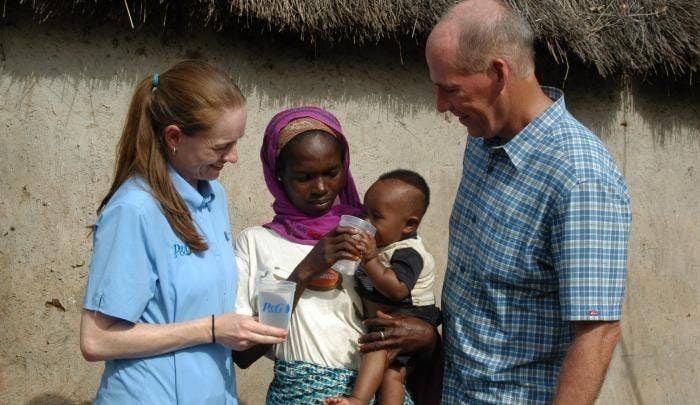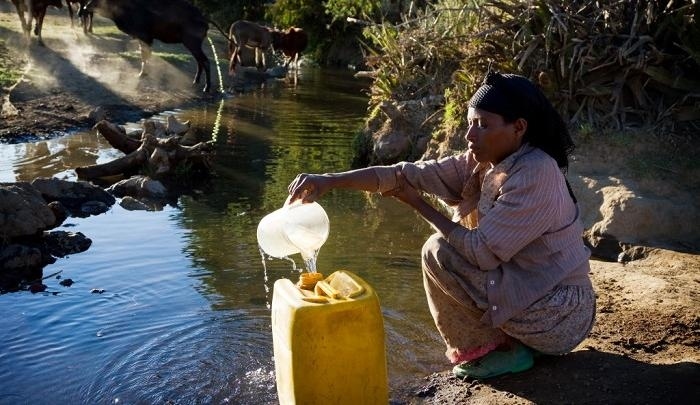
A family at a World Vision program in Gberami, Ghana, received the billionth liter from the partnership.
A pond is the water source for Sikira Ahmed, her husband Ahmed Abdulai and their sons – 5-year-old Rasheed and 6-month-old Failu.
"It's miraculous that the partnership between P&G and World Vision has now grown to the point that it's provided 1 billion liters of clean water reaching 6.5 million people," said Dr. Greg Allgood, Vice President of Water at World Vision.
"At P&G we are committed to making every day better for people around the world," said Allison Tummon Kamphuis, Leader of the P&G Children's Safe Drinking Water Program. "We are grateful for our partnership with World Vision, helping bring clean drinking water to millions of people with our P&G water purification packets in more than 34 countries. Together our work is propelling us closer to our goal to save one life every hour by 2020."
More than 100 million P&G Purifier of Water packets have been given to families throughout World Vision communities in 34 countries. Within 30 minutes the small packet transforms brown, dirty and dangerous water into clean and healthy water for drinking.
More than 1,600 children die each day from diarrhea caused by unsafe water, and more die from diseases caused by unsafe water than by HIV/AIDS and malaria combined.

World Vision is the largest nongovernmental provider of clean water in the developing world – reaching one new person with clean water every 30 seconds.
Through its "For Every Child" campaign, World Vision is investing $400 million over six years to address the global water crisis and reach 7.5 million people alone with safe water, sanitation and hygiene.
In just the last two years, World Vision has quadrupled its capacity to provide clean water in the developing world. Water is one critical element of World Vision's comprehensive, holistic development program.
“Clean water and sanitation is the best investment we can make in the developing world to lift people out of poverty,” said Greg Allgood, vice-president of World Vision Water.

As World Water Day approaches, World Vision, along with hundreds of faith, corporate and nonprofit leaders, will descend upon Capitol Hill ...
Thursday, March 13 we will urge the U.S. Government to improve its water and sanitation spending to reach countries that truly lack access to clean water and proper sanitation, rather than countries of political interest.
According to the U.S. State Department, the US Agency for International Development (USAID) in fiscal year 2012 spent over 40 percent of funds designated for water and sanitation in countries where 80 percent or more of the population already had access to clean water and proper sanitation.
"The U.S. Government funds designated for water and sanitation is a miniscule portion of the overall foreign affairs budget, and even these funds are unfortunately falling victim to politics," said Lisa Bos, Global Health senior policy advisor at World Vision. "The U.S. has made great strides in improving access to clean water in the developing world that have greatly reduced preventable child deaths, but there are so many more lives that could be saved if water funds were used in countries that truly need it."
In efforts to eliminate this funding imbalance, hundreds of advocates will meet with policymakers on March 13 to call for their support of the Water for the World Act (HR 2901). This bipartisan legislation would require the U.S. Government to spend existing money for clean water and sanitation services solely in the most poor and vulnerable countries. It would also allow greater transparency and accountability of U.S. taxpayer dollars invested in USAID water and sanitation support, and enable them to improve their long-term impact without spending any additional money.

